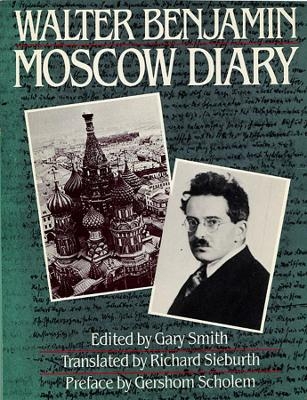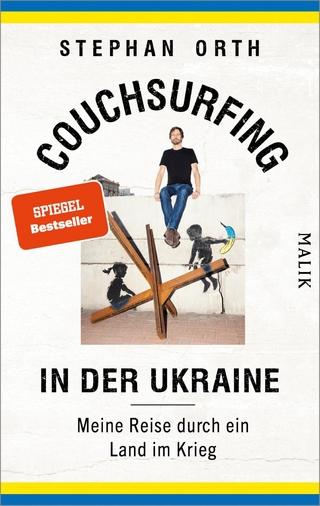
Moscow Diary
Seiten
1986
Harvard University Press (Verlag)
978-0-674-58744-1 (ISBN)
Harvard University Press (Verlag)
978-0-674-58744-1 (ISBN)
The life of literary critic and philosopher Benjamin (1892–1940) is a veritable allegory of the life of letters in the 20th century. Benjamin’s intellectual odyssey included an eventful trip to the USSR. His stunning account of that journey is unique among his writings for the frank, merciless way he struggles with his motives and his conscience.
The life of the German-Jewish literary critic and philosopher Walter Benjamin (1892–1940) is a veritable allegory of the life of letters in the twentieth century. Benjamin’s intellectual odyssey culminated in his death by suicide on the Franco–Spanish border, pursued by the Nazis, but long before he had traveled to the Soviet Union. His stunning account of that journey is unique among Benjamin’s writings for the frank, merciless way he struggles with his motives and conscience.
Perhaps the primary reason for his trip was his affection for Asja Lācis, a Latvian Bolshevik whom he had first met in Capri in 1924 and who would remain an important intellectual and erotic influence on him throughout the twenties and thirties. Asja Lācis resided in Moscow, eking out a living as a journalist, and Benjamin’s diary is, on one level, the account of his masochistic love affair with this elusive—and rather unsympathetic—object of desire. On another level, it is the story of a failed romance with the Russian Revolution; for Benjamin had journeyed to Russia not only to inform himself firsthand about Soviet society, but also to arrive at an eventual decision about joining the Communist Party. Benjamin’s diary paints the dilemma of a writer seduced by the promises of the Revolution yet unwilling to blinker himself to its human and institutional failings.
Moscow Diary is more than a record of ideological ambivalence; its literary value is considerable. Benjamin is one of the great twentieth-century physiognomists of the city, and his portrait of hibernal Moscow stands beside his brilliant evocations of Berlin, Naples, Marseilles, and Paris. Students of this particularly interesting period will find Benjamin’s eyewitness account of Moscow extraordinarily illuminating.
The life of the German-Jewish literary critic and philosopher Walter Benjamin (1892–1940) is a veritable allegory of the life of letters in the twentieth century. Benjamin’s intellectual odyssey culminated in his death by suicide on the Franco–Spanish border, pursued by the Nazis, but long before he had traveled to the Soviet Union. His stunning account of that journey is unique among Benjamin’s writings for the frank, merciless way he struggles with his motives and conscience.
Perhaps the primary reason for his trip was his affection for Asja Lācis, a Latvian Bolshevik whom he had first met in Capri in 1924 and who would remain an important intellectual and erotic influence on him throughout the twenties and thirties. Asja Lācis resided in Moscow, eking out a living as a journalist, and Benjamin’s diary is, on one level, the account of his masochistic love affair with this elusive—and rather unsympathetic—object of desire. On another level, it is the story of a failed romance with the Russian Revolution; for Benjamin had journeyed to Russia not only to inform himself firsthand about Soviet society, but also to arrive at an eventual decision about joining the Communist Party. Benjamin’s diary paints the dilemma of a writer seduced by the promises of the Revolution yet unwilling to blinker himself to its human and institutional failings.
Moscow Diary is more than a record of ideological ambivalence; its literary value is considerable. Benjamin is one of the great twentieth-century physiognomists of the city, and his portrait of hibernal Moscow stands beside his brilliant evocations of Berlin, Naples, Marseilles, and Paris. Students of this particularly interesting period will find Benjamin’s eyewitness account of Moscow extraordinarily illuminating.
Walter Benjamin (1892–1940) was the author of many works of literary and cultural analysis. Gary Smith is an editor at work on the Einstein Papers project. Richard Sieburth is Associate Professor of French, New York University. Gershom Scholem (1897–1982), a close friend of Walter Benjamin, was Professor of Jewish Mysticism at The Hebrew University of Jerusalem.
Preface by Gershom Scholem Moscow Diary Appendices 'Russian Toys" by Walter Benjamin Letters from Walter Benjamin Afterword by Gary Smith Index
| Erscheint lt. Verlag | 31.7.1986 |
|---|---|
| Übersetzer | Richard Sieburth |
| Vorwort | Gershom Scholem |
| Zusatzinfo | 24 halftones |
| Verlagsort | Cambridge, Mass |
| Sprache | englisch |
| Maße | 178 x 229 mm |
| Gewicht | 245 g |
| Themenwelt | Reisen ► Reiseberichte ► Europa |
| ISBN-10 | 0-674-58744-8 / 0674587448 |
| ISBN-13 | 978-0-674-58744-1 / 9780674587441 |
| Zustand | Neuware |
| Haben Sie eine Frage zum Produkt? |
Mehr entdecken
aus dem Bereich
aus dem Bereich
10.000 Kilometer mit dem Rad am Eisernen Vorhang entlang vom …
Buch | Softcover (2023)
Verlag Voland & Quist
CHF 34,90
Eine Reise durch die Stadt der Lichter
Buch | Hardcover (2024)
Midas Collection (Verlag)
CHF 37,90
meine Reise durch ein Land im Krieg
Buch | Softcover (2024)
Malik (Verlag)
CHF 25,20


